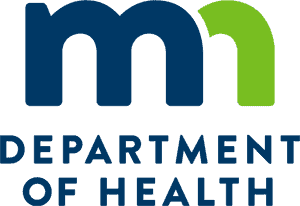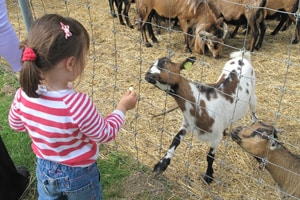SEPTEMBER 2017
Agritourism: Keeping Your Visitors Happy and Healthy
 Fall is your favorite time of year- usually. You love the changing leaves, the pumpkin pie, and the hundreds of excited visitors that come to your farm to pick out their Halloween jack o’lanterns and play with the baby goats. This fall, however, has not gone according to plan. A few days ago you received a call from the Minnesota Department of Health that three children have been diagnosed with an E.coli infection. The believed source of the E.coli: your pumpkin patch. You thought you took the right precautions; you always made sanitation a priority; you never wanted anyone to get sick. But, here you are.
Fall is your favorite time of year- usually. You love the changing leaves, the pumpkin pie, and the hundreds of excited visitors that come to your farm to pick out their Halloween jack o’lanterns and play with the baby goats. This fall, however, has not gone according to plan. A few days ago you received a call from the Minnesota Department of Health that three children have been diagnosed with an E.coli infection. The believed source of the E.coli: your pumpkin patch. You thought you took the right precautions; you always made sanitation a priority; you never wanted anyone to get sick. But, here you are.
Although agritourism events serve as wonderful learning experiences, the interaction between animals and humans can cause disease outbreaks including Salmonella and E. coli.
Agritourism is an opportunity for farms to allow guests onto the premises to enjoy some kind of agriculture experience. “The purpose of agritourism is to educate the public about agriculture while also providing supplemental income to farmers,” says Senior Epidemiologist at the Minnesota Department of Health (MDH) Carrie Klumb. Although agritourism events serve as wonderful learning experiences, the interaction between animals and humans can cause disease outbreaks including Salmonella and E. coli.
“We think agritourism is a great opportunity for people to learn about animal agriculture, and we encourage those opportunities. We just want to make sure that producers and visitors understand that there are risks and to know how to minimize them.”
The MDH tracks and analyzes disease outbreaks that are caused by human interaction with animals. “The health department’s goal is to foster relationships with producers and visitors of agritourism venues. Our focus is on education and prevention not regulation,” says Carrie.
 The MDH is also a great point of contact for agritourism questions and concerns:
The MDH is also a great point of contact for agritourism questions and concerns:
- Do I have the correct licensing to serve food and beverages?
- Where should I locate handwashing stations?
- What are the emergency steps to be taken if a bite or other animal injury occurs?
The MDH can help answer these questions, and consult with you about prevention plans. Whether you are planning to incorporate agritourism into your operation or already have an established agritourism business, the MDH is the place to turn. As Carrie Klumb from the MDH says, “We are here to help.”
If you have specific questions about hosting an agritourism event on your farm, contact:
Minnesota Department of Health, Zoonotic Diseases Unit
651-201-5414 or 1-877-676-5414
Upper Midwest Agricultural Safety and Health Center
612-625-8836


